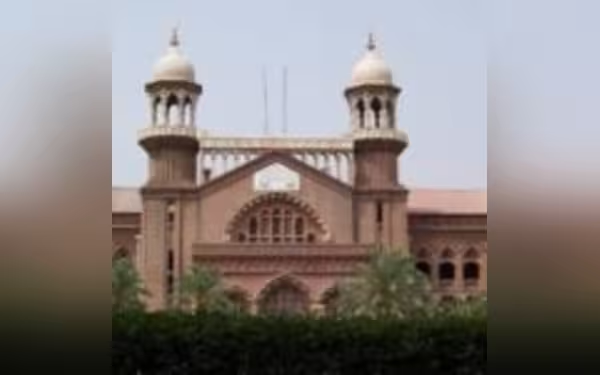Saturday, November 16, 2024 05:48 PM
LHC Demands Federal Government and ECP Responses on Reserved Seats Verdict
- LHC sets September 27 deadline for replies.
- Justice Sheikh warns of consequences for non-compliance.
- Case highlights electoral representation issues in Pakistan.
 Image Credits: pakistantoday
Image Credits: pakistantodayLHC demands responses from federal government and ECP on reserved seats verdict by September 27, highlighting electoral representation issues.
In a significant development, the Lahore High Court (LHC) has called upon the federal government and the Election Commission of Pakistan (ECP) to provide their responses regarding the implementation of a verdict concerning reserved seats. This request comes as part of a petition filed by a citizen named Muneer Ahmed, represented by Advocate Azhar Siddique. The court has set a deadline for these replies to be submitted by September 27.
During the court proceedings, Justice Raheel Kamran Sheikh presided over the case and was informed by a government attorney that the Attorney General of Pakistan was currently engaged in a meeting with the Supreme Judicial Council. The attorney also highlighted that the chairman of the Pakistan Tehreek-e-Insaf (PTI), Barrister Gohar Ali Khan, had already submitted a related petition to the Supreme Court. This raised questions about the admissibility of the case in the LHC, prompting Justice Sheikh to ask Advocate Siddique to clarify the standing of the petition.
Advocate Siddique argued that the Supreme Court had not issued any formal notice or case numbers regarding the matter, and he referenced Article 184(3) of the Constitution, which restricts the filing of direct petitions in the Supreme Court. The discussion also touched upon the challenges to the National Accountability Bureau (NAB) Act that are currently under consideration by the Supreme Court, particularly whether amendments made after the Practice and Procedure Act could still be contested.
Justice Raheel Kamran emphasized that a crucial aspect of the case involves the allocation of reserved seats to the PTI. He pointed out that if the amendment act is found to be unconstitutional, the Supreme Court's decision would be enforced without exception. The judge issued a stern warning that if the federal government and the ECP do not submit their replies within the stipulated 15 days, they risk forfeiting their right to defend themselves in this matter.
The court subsequently adjourned the hearing, firmly demanding that the federal government and the ECP respond by the set deadline of September 27. This case highlights the ongoing legal complexities surrounding electoral processes in Pakistan, particularly concerning the allocation of reserved seats, which are crucial for ensuring representation in the political landscape.
As the situation unfolds, it remains essential for all parties involved to adhere to the court's directives. The outcome of this case could have significant implications for the political representation of various groups in Pakistan, making it a matter of public interest. Citizens are encouraged to stay informed about the developments in this case, as it underscores the importance of legal frameworks in upholding democratic principles.













